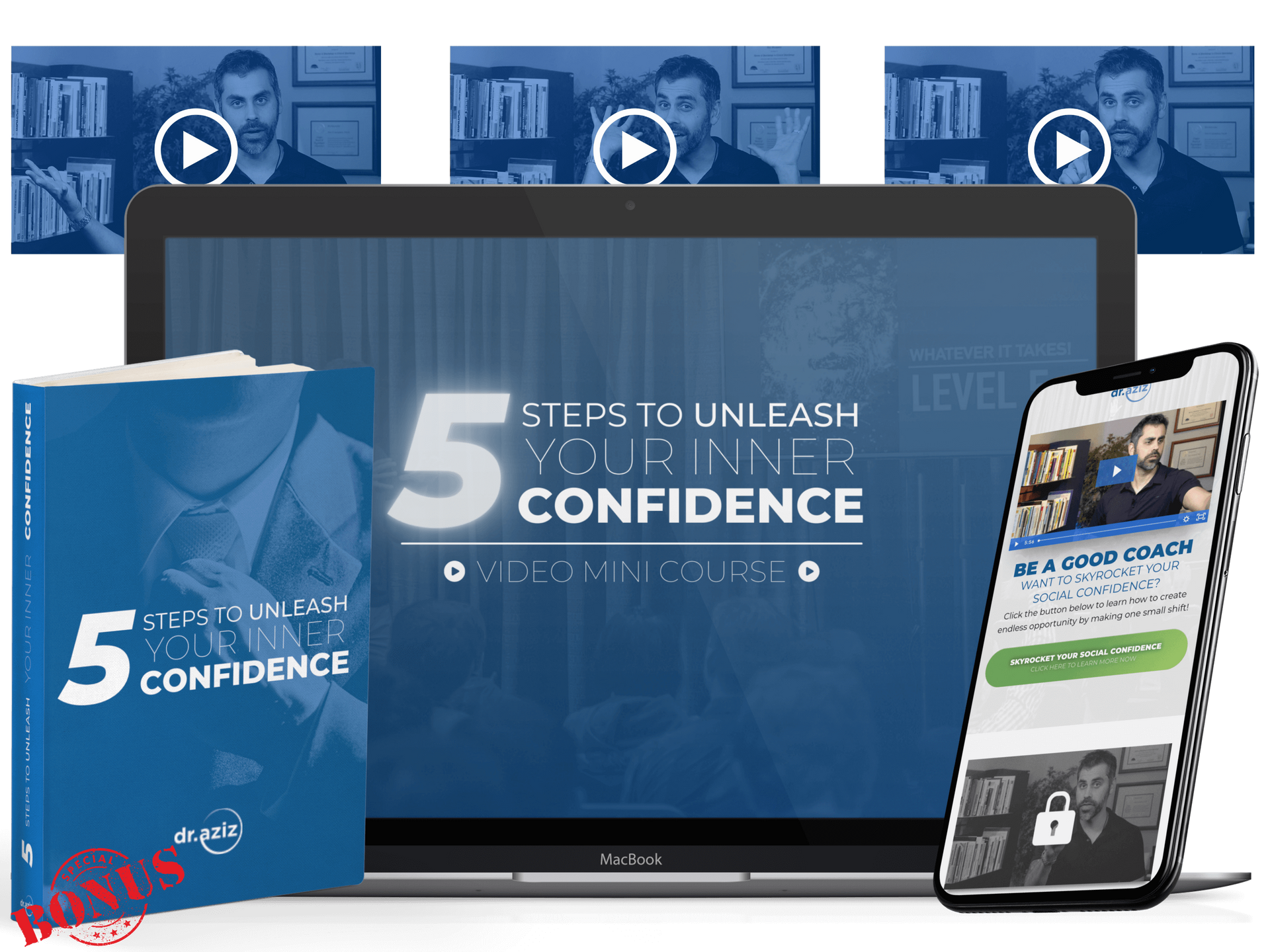How To Stop Overthinking In Social Interactions
Nov 29, 2021Do you find it difficult to turn off the little voice in your head while at parties?
Do you constantly wonder if the person you’re talking to thinks you’re a bore?
Do you wish you could go through just one social interaction without doubting yourself, getting tense, and hyper-focusing on every little “mistake”?
This is a topic that so many of us obsess over on a daily basis. We should be enjoying a good time and appreciating the company of those around us, but, instead, we’re always in our heads judging every moment.
Even when a social interaction does go well, we spend the entire drive home replaying each moment and overanalyzing everything we said.
Once we get into that pattern, we’ve stopped looking for real information—we’re simply living in a reality of our own creation in which nothing we do is ever right.
When you’re terrified of social interactions, it becomes too easy to jump to negative conclusions about everything we do and say. We become unsettled and uncomfortable for no reason, and our connections with the people around us start to erode before our very eyes.
We should be feeling engaged and fulfilled but what we’re really feeling is anxious, empty, and dissatisfied.
So, how do we stop this pattern and begin to turn it around? Well, there are several ways to go about this, but perhaps the most important one starts with realizing one universal fact: You are going to be disliked.
Not everyone is going to like you—that’s just an inescapable part of being human.
Now, for some people, this is a terrifying notion: “What?! I’m a nice person! Why shouldn’t everyone love me?! What am I doing wrong?!”
The short answer is that you’re not doing anything wrong—you’re just not everyone’s cup of tea. Think about it: if everyone got along perfectly at every moment, there would be no context for appreciating the close friendships we have. After all, without the bad, there can be no good.
If this is an impossible concept for you to accept, I recommend you check out my book, Not Nice. This is a great resource for people who have trouble letting go of being the “nice guy” and incessantly trying to win everyone’s affections.
If you’re looking to take a deeper dive with a supportive group of like-minded individuals seeking the same liberation from worry, then click the link below for information on my three-day live event, Supremely Confident Conversation Master. Live events are the perfect place to radically transform your confidence levels at a rapid pace, and in this one, we’ll be diving into the art of living as your authentic self in social situations and using that reality to your advantage in conversing with others. If you’re really looking to reach your ultimate confidence goals, there is truly no better resource for getting you to where you want to be, rapidly and effectively.
In the meantime, let’s look at some practices that you can start engaging in today to help you access a more confident version of yourself in social settings.
I can tell you from experience that overthinking in social interactions is a symptom of a larger internal struggle—one that must be addressed if you ever hope to enjoy conversations freely and easily.
Why do we all react so drastically to the idea that someone might not like us? Because that fear isn’t really about not being liked—it’s about what we believe could happen as a result of not being liked:
- He hates me . . . I’m never going to get that promotion.
- She thinks I’m a loser . . . I’ll never find anyone to love me.
- They didn’t laugh at my joke . . . I’ve offended them and they’re never going to talk to me again.
These scenarios are terrifying! Nobody wants to be alone, unemployed, or unloved. Hence our natural reaction to the idea of being disliked is, of course, to let fear take over.
What’s worse is that we’re programmed to have a tangible physical reaction to fear.
Two million years ago, when we were still developing language and living in caves, our genetic predecessors were rewarded with their lives for running away from danger. Over time, that need to stay safe has been so engrained in the human psyche that we have instant responses to fear: sweaty palms, racing heart, cottonmouth, and an urge to run as fast as possible in the opposite direction.
Unfortunately, these are not ideal reactions to have in the middle of a social interaction . . . and that just makes sticking to our guns even more difficult.
What are you being threatened by when you begin to feel fear during a social interaction?
What are you missing out on because of your fear?
Many times, we could choose to be more bold and outspoken, but we’re afraid we’ll offend someone; we could choose to be a more authentic version of ourselves, but we’re afraid that version will be rejected; we could choose to be more direct in conversations, but we don’t want to come across as “not nice.”
We could be making great strides in multiple areas of our lives, BUT we’re too afraid to take a chance.
All those “buts” are doing nothing for you, except keeping you in a safe little box, where nothing bad (but nothing GOOD) ever happens!
If you live life always trying to avoid some set of perceived losses, you’ll never go after all of the beautiful joys you could win.
We cannot go through life being ruled by our safety police—constantly checking in with the voices in our heads to make sure we’re not stepping over the line or taking any risks. We have to learn to step out of our “smaller selves” and face the threat of discomfort and rejection head-on.
One way to do that is to identify the threat and simply allow yourself to realize that there is no real danger there.
The truth is that you do not need to be liked by everyone you meet to survive. Sure, it might be disappointing not to be liked by someone, but it will not kill you. So, let yourself take that truth in! Close your eyes, take a deep breath, and say to yourself, “I’m not for everybody. I’m not for everybody. Not everyone is going to like me.”
Do this over and over again until your mind finally starts to let it in.
“I’m not for everybody. I’m not for everybody. Not everyone is going to like me.”
Commit to taking a few minutes out of every day to repeat this phrase to yourself.
You have the power to get control over your mind—you just have to take the time necessary to rewire some very deeply engrained mental programming. You can keep using all of your energy to try to get everyone to like you . . . but that is a fool’s errand. Instead, why not dedicate that energy toward expressing yourself more freely and convincing yourself to let go of the fear that is holding you back from the life you deserve?
If you can learn to do that, you’ll not only begin to feel more confident in conversations and social interactions, but you’ll also enjoy a newfound freedom from undue worry, fear, and stress. Now, that sounds like a reality that’s worth fighting for!
Again, please click below for links to my book, Not Nice, and my upcoming event, Supremely Confident Conversation Master (running April 14th-16th). As always, I’d also like to invite you to share your thoughts and questions in the comments below. Conversation mastery is a key component to a joyful life, so please engage with others on this topic so that we can grow to our fullest potential!
Until we speak again, may you have the courage to be who you are and to know on a deep level that you’re awesome.
Reading blogs and watching videos online is a start...
When you are ready to radically transform your confidence so you speak up freely, boldly go after what you want, connect easily with others and be 100% unapologetically yourself, coaching is the answer.



